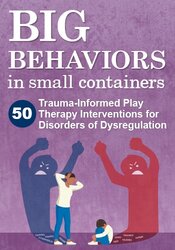Enrol in an online course today for flexible, self-paced learning—no fixed schedule required. Plus, enjoy lifetime access to course materials for convenient revisiting.
Supporting Lonely Clients

Loneliness is a psychological phenomenon – it is defined as the perceived deficit between actual social relationships and desired social relationships, either in quality or quantity (Perlman & Peplau, 1981). The UK Government were so concerned about the impact of loneliness during the coronavirus outbreak and period(s) of social distancing, that they have offered £5 million in grant funding to tackle loneliness and build social connections.
Our clients with pre-existing mental health problems are particularly vulnerable to experiencing loneliness and a deterioration in their mental health during the pandemic. We know that mental health problems and loneliness are closely associated. Lonely people are more vulnerable to develop mental health problems and people with mental health problems are more likely to be lonely. As mental health services are disrupted, it can be even harder for our clients to get the help they need in the way that they want it. Services have generally been fantastic at trying to deliver support remotely but for some people, such remote delivery is challenging.
When I first started working in this area, I was struck by the relative lack of communication between therapists and counsellors working to reduce loneliness in individual clients, and the efforts being made by community groups to provide opportunities for increased social connections. It seemed pretty obvious to me that both were needed. As a cognitive behavioural therapist, finding opportunities for behavioural activation and behavioural experiments seemed of fundamental importance to helping people overcome some of their unhelpful beliefs about social contact and engagement. Similarly, I thought about the wonderful opportunities that are being provided that cannot be accessed because of clients’ beliefs, mood and anxiety. Surely the two need to come together?
As therapists trying to help our clients with loneliness during the pandemic, I would recommend that we do the following:
- Know what social opportunities and support services are available to clients and how they can best be accessed. As I write this, restrictions are being put back in place and such opportunities may largely need to be remotely delivered. But it can be helpful to also be aware of the training and support that is available for using technology. Telephone support is just as valid and important as digital support and may be preferred for our older clients.
- Understand the barriers that prevent our clients from taking advantage of social opportunities.
- Work together with services or individuals to test beliefs about social contacts and activities, to help overcome some of the barriers.
- Work with clients to identify wider networks for social support in addition to specific activities. Calling some of the helplines or services together with your client may be an important first step in accessing support.
- Normalising loneliness. Letting clients know how common loneliness is, and that it affects people of all ages, can be helpful information. Helplines are there to help, and addressing any stigma over accessing them may be a critical part of therapeutic work.
- Continue to work on perceptions and beliefs about loneliness and social relationships to try to establish realistic goals. Social skills and communication training, stress management and, my personal favourite, problem-solving, can all have an important role to play in reducing loneliness.
Finally, don’t forget to take care of yourself too.
Read more about the Campaign to End Loneliness, which commissioned Roz Shafran to research psychological approaches to tackling loneliness.
















